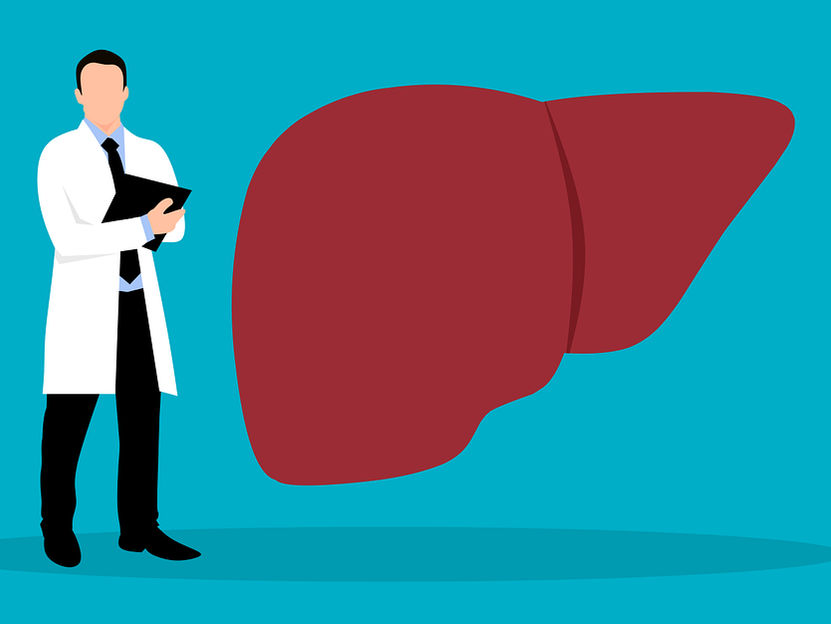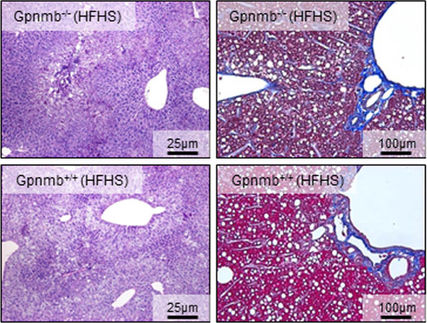Netrin-1, a new player in hepatic inflammation
Initially known for its role in the survival of tumor cells, netrin-1 could also be strongly involved in the evolution of liver diseases towards fibrosis or cancer: this protein would be overexpressed during acute hepatic inflammation, and would favor its maintenance.

pixabay.com
In the absence of effective treatment, chronic inflammatory liver diseases sometimes evolve towards cirrhosis or even liver cancer (hepatocarcinoma), regardless of their origin - infectious, metabolic, alcoholic, autoimmune or genetic. This phenomenon could be explained by the fact that they share common pathological processes. To find out more, researchers looked at the role of netrin-1, a molecule with higher levels in diseased liver cells. "This protein protects certain cells from death by apoptosis, especially tumor cells. But its action has not been precisely described in the context of chronic liver diseases," explains Romain Parent*, who supervised this work.
The efforts of the researcher and his team have made it possible to confirm that netrin-1 is expressed more in liver cells the more severe the liver inflammation. Their results also show that the mechanism at work is not based on a classic increase in the synthesis of messenger RNA at the origin of netrin-1, but rather on an intensification of the translation of these messenger RNAs into proteins. "If this result does not condition the understanding of the physiopathological phenomena involved, it is important on a fundamental level: it reminds us that the total quantity of messenger RNA does not exactly reflect the quantity of the corresponding protein present in a cell. It is therefore necessary to conduct a detailed analysis of all the steps involved in the modulation of its synthesis in order to study the regulation of a physiopathological phenomenon with the greatest possible accuracy.
Deactivating one actor of inflammation to better understand the others
In a second step, the researchers wanted to evaluate the importance of netrin-1 in the processes associated with the evolution of liver disease: they tested the effect of NP137, an anti-netrin-1 monoclonal antibody tested in the management of certain cancers. The first results obtained confirm that blocking netrin-1 reduces an acute inflammation initiated a few hours earlier.
Romain Parent wishes to continue this work by studying how the long-term blocking of the protein can modify the evolution of liver damage, this time in the context of chronic inflammation: "This leads, at least indirectly, to the carcinogenesis of the liver tissue. This leads, at least indirectly, to the cancerization of liver tissue. Most of the treatments that target it are not sufficiently effective in countering it. Indeed, inflammation spreads through multiple biological pathways that differ according to the origin of the disease and, perhaps, also according to the duration of its evolution. Our work suggests that it is possible to defuse one of the mechanisms at work. This may be of clinical interest for new treatments of these diseases. On a more fundamental level, it shows that it is possible to "turn off" a defined inflammatory pathway in order to study its interaction with the other pathways involved at the same time. This approach could make it possible to identify the subtleties that distinguish chronic liver diseases from one another, with the hope - in fine - of proposing more targeted therapeutic tools.
Note: This article has been translated using a computer system without human intervention. LUMITOS offers these automatic translations to present a wider range of current news. Since this article has been translated with automatic translation, it is possible that it contains errors in vocabulary, syntax or grammar. The original article in French can be found here.






















































